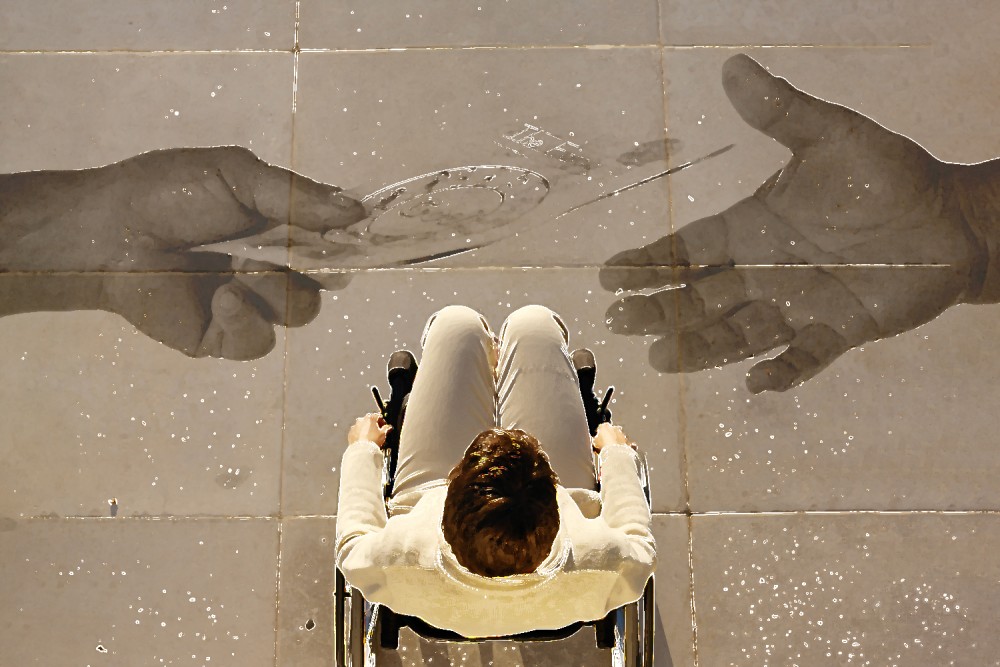Present together
When I was a chaplain intern working with people with disabilities, there was one man I visited every Sunday right after worship.

Century illustration (Source images: George Doyle / Stockbyte / Getty and Erika Giraud on Unsplash)
During seminary, for my field education requirement I worked for a year in the chaplain’s office at a state-run residential facility for people with profound intellectual and developmental disabilities. Clusters of apartment buildings and cottages throughout the 240-acre campus provided housing and care for 500 people, many of whom had lived there for decades due to their health-care needs and our society’s general lack of proper infrastructure to support their lives elsewhere. My work as a chaplain intern was to help organize and lead the Christian worship service on Sundays and to visit regular worship participants who were absent that week due to medical issues. The chaplains would give me a list of the people who had indicated that they’d appreciate a visit during the week since they couldn’t make it to chapel.
There was one person, however, I was sent to visit immediately after worship every Sunday. He had spent most of his adult life at the facility and for all of those decades, as long as he was healthy enough, he made sure he was at the chapel for each and every service or event. For Sunday worship, he regularly served as a greeter. Staff would position his wheelchair at the entrance, where he’d welcome people to church. He was entrusted with making sure each congregant received a worship bulletin, which were stacked on a tray attached to his wheelchair.
These bulletins communicated more than instructions about the order of worship. They were cherished items, endowed with spiritual meaning. Congregants made sure to take them home. When I’d wander residence halls, stopping for conversations with parishioners, I’d see them on coffee tables and nightstands. Staff assistants told me that people would show family members and friends the bulletins when they’d come to campus for visits. To have guests flip through a bulletin was part of sharing about their experience of worship—as if the pages had been imbued with the joy of fellowship, saturated with memories of God’s people, hallowed through sacred use.




